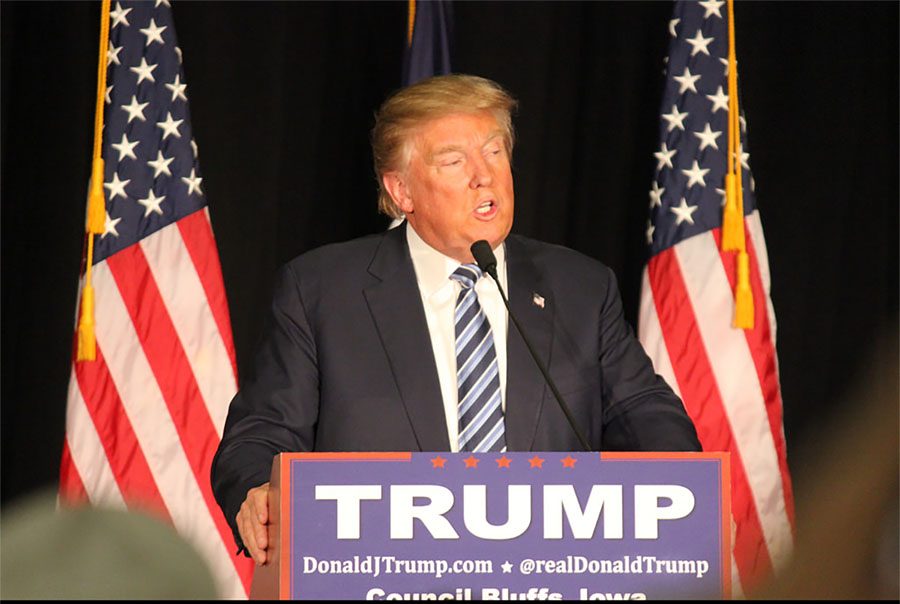Trump’s 100-Day Plan: part one
Donald Trump’s plan for office includes proposals to combat government corruption
More stories from Emilee Wentland
President-Elect Donald Trump made his plans to combat corruption within the government evident in his 100-day plan for presidency, initially released in late October.
The first part of Trump’s plan for office includes imposing term limits for members of Congress, regulations to curtail lobbying at the federal level and placing a hiring freeze on federal employees.
In order to pass these proposals, two-thirds of both the Senate and the House of Representatives need to vote in favor to approve them.
UW-Eau Claire political science professor Rodd Freitag said he doesn’t see either of these plans being passed by Congress. It doesn’t seem likely because the legislature would have to vote against their own interests, he said.
“Essentially (he’s) calling on our Congress to ban itself from future employment,” Freitag said.
Another goal Trump wants to accomplish is to place restrictions on lobbying political functionaries. He intends to ban former federal government officials from lobbying for at least five years — or even a lifetime for White House officials — after they leave government service.
The government has tried placing bans on lobbying before, Freitag said, but typically people can find loopholes around them. The bans Trump proposed would be similar in terms of trying to keep former public officials from transferring straight into private work after retirement, he said.
According to “Donald Trump’s Contract With The American Voter,” Trump also plans to put a hiring freeze on federal employees by using attrition, which means that once the employees (exempting public health, public safety and military personnel) leave their positions, they will not be filled.
Additionally, the document states the president-elect plans to make a requirement that, for each new regulation made, two old ones need to be eliminated.
Freitag said this section of the plan is not only unconnected to the others, but the notion seems like an “arbitrary approach” to the issue.
“Usually there’s a reason for a regulation,” Freitag said. “The general notion that we should reduce regulations is perfectly legitimate, but doing it in this manner just seems to be silly.”
Eau Claire College Republicans Chair Mitchel Orlovsky said combating corruption within the government is “definitely something that has to be done.”
As far as Trump getting those proposals passed into laws, Orlovsky isn’t sure how Congress will react to the president-elect’s ideas.
“It’s going to be interesting to see what goes on since Republicans have a pretty big majority in Congress now,” Orlovsky said. “It’s going to be a lot of compromise, I think. If there’s not compromise, then nothing is going to get done.”
Eau Claire College Democrats Chair Jake Mcguire said Trump’s plan seems to be going along with his campaign promises. The bans on lobbying will likely be the most beneficial to the United States, he said.
“I’m not saying all lobbyists are bad,” he said. “There are lobbyists that lobby for environmental protection. But there are lobbyists that are in just for special interests.”
Mcguire said bans on lobbying — especially the five-year ban on federal officials after they leave office — could potentially lead to less ex-officials lobbying for private reasons.
Trump’s plan for combatting corruption is only the first part of his 100-day action plan. The remaining parts include renegotiating foreign trade deals, getting rid of climate change-related laws Obama passed, taking actions to restore security and introducing many legislative measures.


